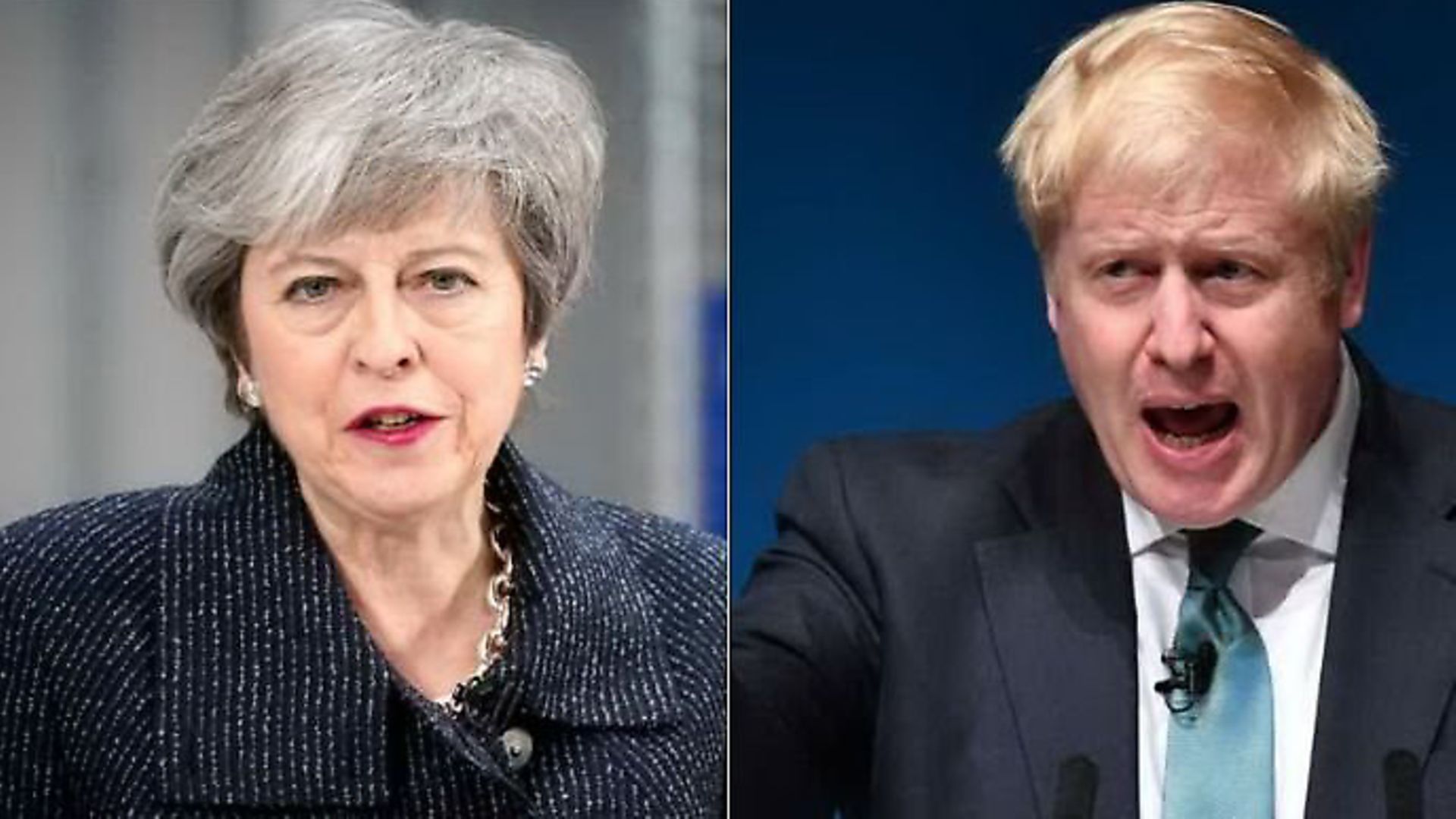
A report has slammed prime minister Boris Johnson and his predecessor prime minister Theresa May for failing to defend the civil service from MPs and media scrutiny during Brexit negotiations.
The Institute for Government, a governance think tank, revealed that both leaders put advisors and other civil service in difficult positions.
The report stated that Theresa May allowed her Europe advisor Olly Robbins to become a ‘target’ for political attacks while Boris Johnson put officials under the ‘immensely difficult position’ of potentially breaking the law to leave the EU without a deal on October 31 last year.
It also said the civil service failed to properly warn ministers of the consequences behind delaying key decisions and the impact of a no-deal Brexit on Northern Ireland.
‘The civil service was unable to influence the pace of political decision making on critical issues,’ it stated.
‘The lack of a clear plan hampered the huge job of practical preparations.
‘As indecision and division grew under Theresa May, the civil service worked hard to offer new policies in the hope of keeping both sides of the cabinet happy or to use ambiguous wording to defer conflict.
‘But it was unable to broker compromise. Instead, critical decisions were deferred for too long, options were never ruled out and preparations for the huge practical realities of Brexit were held back – leaving the UK underprepared ahead of key deadlines.’
Analysts were also highly critical of Theresa May’s time in Downing Street, insisting her reluctance to move the Brexit process forward opened up a ‘vacuum’ that not only engulfed cabinet but the whole of Westminster.
‘Those suspicious of the civil service’s role in the EU referendum campaign used this vacuum to deliver increasingly public attacks on individual civil servants, in particular May’s chief negotiator, Sir Oliver (Olly) Robbins. Both May and Johnson failed to offer any significant protection.’
Concerning Johnson’s handling of negotiations on the future of Northern Ireland, analysts were just as scathing.
‘The Johnson government – both ministers and senior officials – claimed to be ready to leave the EU without a withdrawal agreement but failed to address, or admit, the economic and political implications for the people and businesses of Northern Ireland,’ it wrote.
The report called for Whitehall to invest time and resources in their relationships with the devolved governments and to work more closely with business ahead of the end of the Brexit transition period.
Maddy Thimont Jack from the Institute for Government said: ‘The task [of Brexit] is still not complete and the tensions that Brexit exposed – particularly, between ministers and officials – have not necessarily gone away.’
Warning: Illegal string offset 'link_id' in /mnt/storage/stage/www/wp-includes/bookmark.php on line 357
Notice: Trying to get property 'link_id' of non-object in /mnt/storage/stage/www/wp-includes/bookmark.php on line 37






